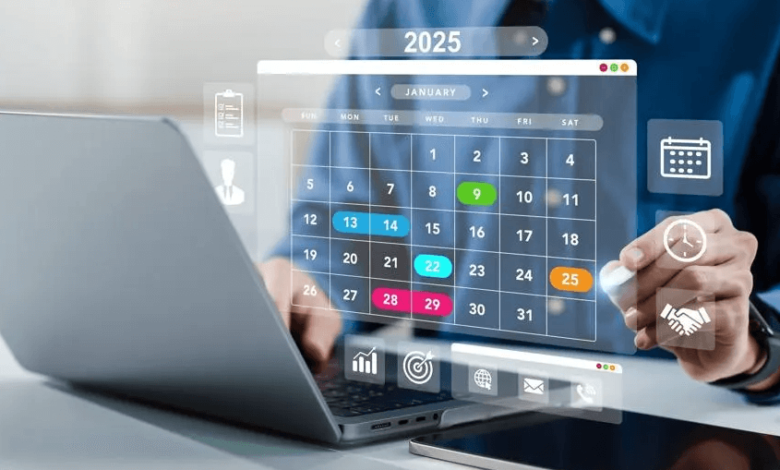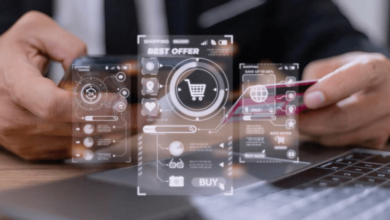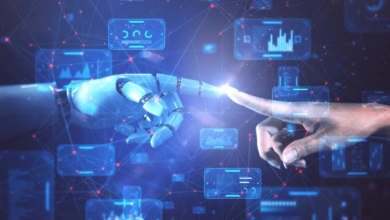Technology in 2025: Key Trends Defining the Future

Technology has become the backbone of modern life, shaping industries, economies, and daily routines. In 2025, the pace of digital transformation is faster than ever, driven by artificial intelligence (AI), cloud computing, blockchain, 5G networks, cybersecurity, and green technology. These innovations are not only improving productivity but also creating smarter, safer, and more sustainable ways of living.
This article explores the most impactful technology trends of 2025 and their influence on society.
Artificial Intelligence: Smarter Solutions for Every Sector
Artificial Intelligence is transforming industries worldwide.
- Healthcare: AI-powered tools detect diseases early, analyze scans, and provide personalized treatment plans.
- Business: Companies use AI chatbots, fraud detection, and analytics to boost efficiency.
- Daily Life: From smart assistants like Alexa to personalized recommendations, AI is everywhere.
Reports suggest AI could add over $15 trillion to the global economy by 2030, making it one of the most influential technologies.
Cloud Computing: The Foundation of Digital Growth
Cloud computing powers the modern digital economy.
- Scalability: Organizations can expand or reduce resources based on needs.
- Collaboration: Remote and hybrid teams work seamlessly on cloud platforms.
- Cost Savings: Reduces dependency on expensive hardware.
In 2025, cloud adoption continues to rise as businesses seek efficiency and flexibility.
See also: Technology in 2025: Trends Transforming the Digital World
Internet of Things (IoT): Connecting Everything
The Internet of Things (IoT) links devices, creating smarter environments.
- Smart Homes: IoT devices manage lights, appliances, and security.
- Healthcare: Wearables monitor heart rate, activity, and sleep patterns.
- Smart Cities: IoT sensors optimize energy use, traffic, and waste management.
By 2030, over 30 billion IoT devices are expected globally, highlighting its growing impact.
Cybersecurity: Protecting Digital Assets
As technology advances, cyber threats are increasing.
- AI Security: Machine learning detects and stops suspicious activities instantly.
- Data Protection: Encryption and multi-factor authentication safeguard sensitive data.
- User Awareness: Training helps individuals recognize scams and phishing attempts.
With cybercrime costs projected in trillions, cybersecurity investment is no longer optional—it’s essential.
5G Networks: Unlocking Faster Connectivity
5G is redefining communication and powering innovation.
- Ultra-Fast Speed: Enables seamless video streaming, gaming, and conferencing.
- Low Latency: Essential for autonomous vehicles and remote surgeries.
- Industrial Benefits: Factories and logistics rely on 5G for automation.
5G is a key enabler of smart cities, IoT, and augmented reality.
Blockchain: Beyond Cryptocurrencies
Blockchain offers much more than digital currencies.
- Finance: Facilitates secure and transparent transactions.
- Supply Chain: Tracks goods from production to delivery with accuracy.
- Healthcare: Protects sensitive medical records from tampering.
With Web3 and decentralized applications gaining popularity, blockchain is reshaping trust in digital systems.
Green Technology: Innovation with Sustainability
Sustainability is central to future technology.
- Renewable Energy: Solar and wind solutions are expanding rapidly.
- Electric Vehicles (EVs): Adoption is reducing dependence on fossil fuels.
- Smart Grids: AI-based grids optimize power distribution and reduce waste.
Green technology demonstrates that progress and sustainability can work together.
Emerging Technologies to Watch
While established innovations dominate today, emerging technologies promise greater disruption:
- Quantum Computing: Can solve problems impossible for traditional computers.
- Metaverse: Creates immersive spaces for education, business, and entertainment.
- Biotechnology: Advances in genetics are reshaping healthcare.
- Artificial General Intelligence (AGI): Future AI that can think and reason like humans.
These fields may define the next decade of digital transformation.
Conclusion
The year 2025 marks a critical stage in technological progress. From AI and cloud computing to IoT, blockchain, cybersecurity, and green tech, innovations are transforming industries and daily life. At the same time, 5G powers faster connections, and emerging fields like quantum computing and biotechnology promise even greater potential.
For businesses, adopting these technologies means stronger competitiveness. For individuals, it means smarter living, safer data, and more sustainable choices. One fact remains certain: technology is not just shaping our future—it is the future.




